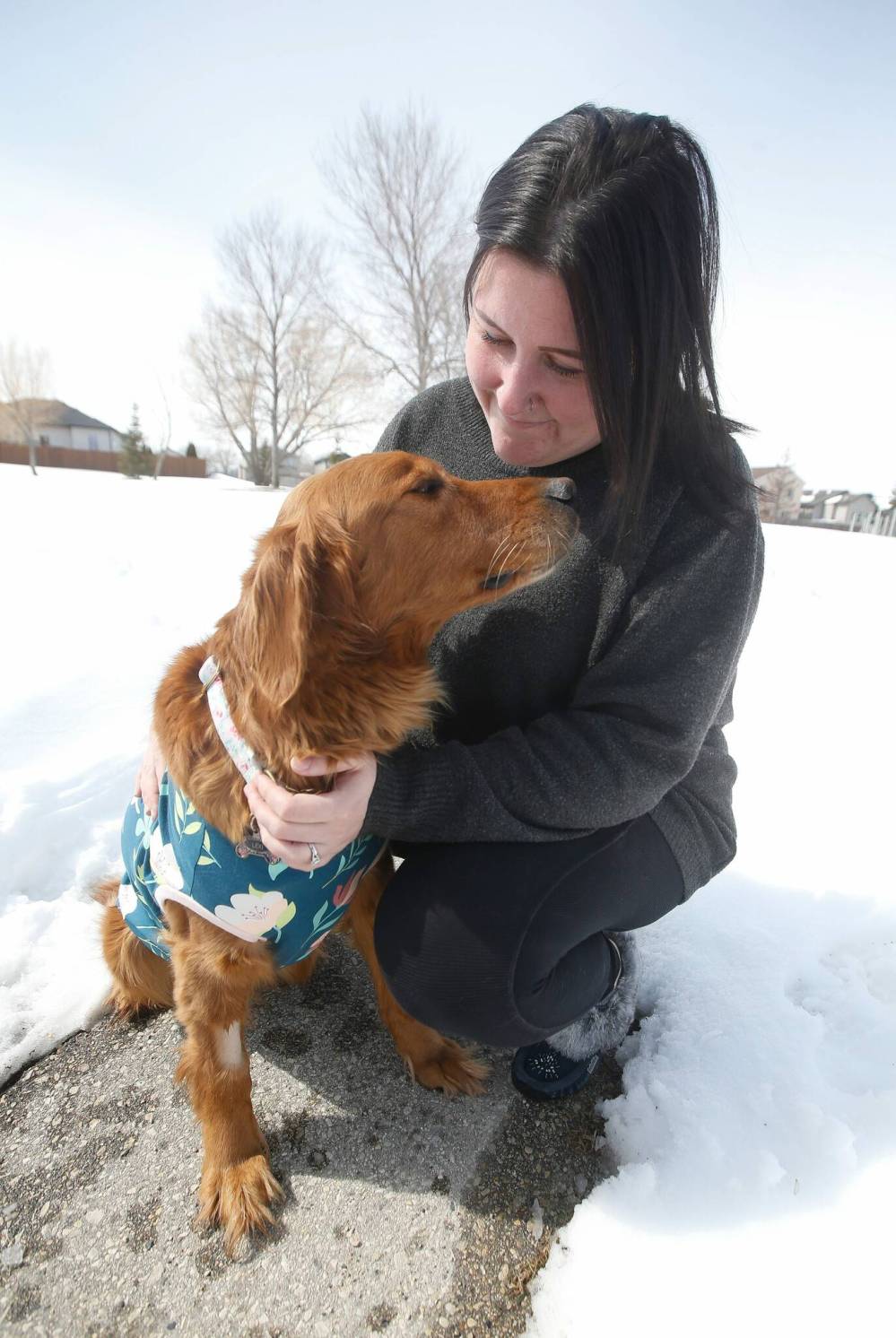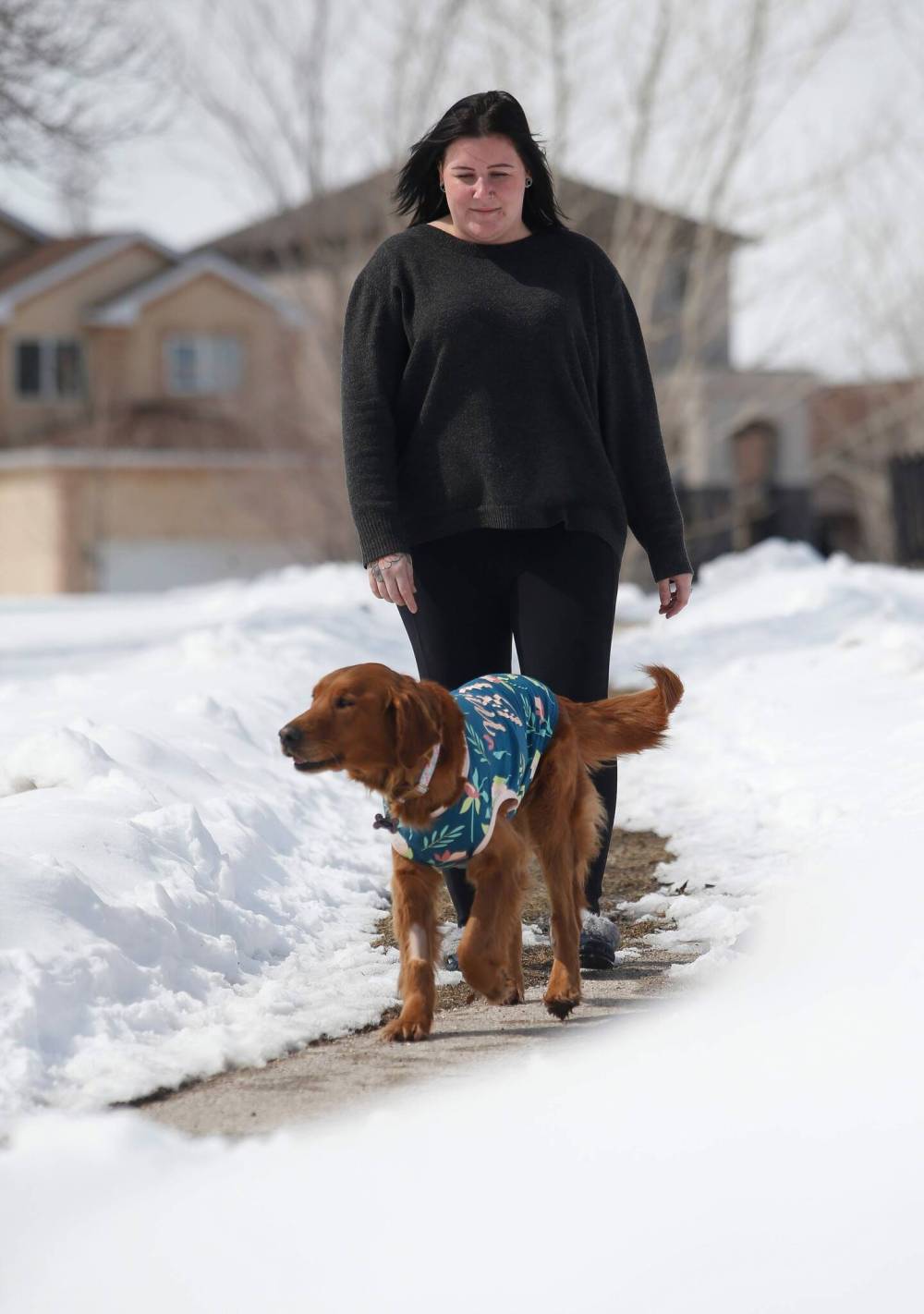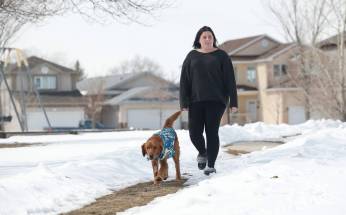Desperate pet owner grateful for Humane Society’s last resort Woman unable to afford emergency surgery surrenders dog to save its life
Read this article for free:
or
Already have an account? Log in here »
To continue reading, please subscribe:
Monthly Digital Subscription
$0 for the first 4 weeks*
- Enjoy unlimited reading on winnipegfreepress.com
- Read the E-Edition, our digital replica newspaper
- Access News Break, our award-winning app
- Play interactive puzzles
*No charge for 4 weeks then price increases to the regular rate of $19.00 plus GST every four weeks. Offer available to new and qualified returning subscribers only. Cancel any time.
Monthly Digital Subscription
$4.75/week*
- Enjoy unlimited reading on winnipegfreepress.com
- Read the E-Edition, our digital replica newspaper
- Access News Break, our award-winning app
- Play interactive puzzles
*Billed as $19 plus GST every four weeks. Cancel any time.
To continue reading, please subscribe:
Add Free Press access to your Brandon Sun subscription for only an additional
$1 for the first 4 weeks*
*Your next subscription payment will increase by $1.00 and you will be charged $16.99 plus GST for four weeks. After four weeks, your payment will increase to $23.99 plus GST every four weeks.
Read unlimited articles for free today:
or
Already have an account? Log in here »
Hey there, time traveller!
This article was published 20/04/2022 (1329 days ago), so information in it may no longer be current.
Samantha Schacht made the gut-wrenching decision to surrender her golden retriever when presented with an expensive vet bill for her extremely ill dog.
The Winnipeg woman was unable to pay for emergency surgery for her eight-year-old dog, Lexi, after she developed a treatable uterine infection called pyometra on the Easter weekend.
“I was bawling my eyes out,” Schacht said.

“I was so overwhelmed. It was honestly one of the most heartbreaking moments of my life.”
Schacht took Lexi to the Winnipeg Animal Emergency Hospital on Pembina Highway Saturday. It’s one of only two 24-hour emergency animal hospitals in the city.
Dr. David Scammell told Schacht her pet required immediate, life-saving surgery for the infection, which is common in mature female dogs who haven’t been spayed.
Under the City of Winnipeg’s Responsible Pet Ownership bylaw, dogs over the age of six months must be spayed or neutered unless the owner possesses a valid licence for an unfixed dog.
Scammell said he described the diagnosis and procedure, said it would be about $2,000, and connected Schacht with administrative staff to sort out payment.
Schacht said she did not have the money.
The emergency hospital does not negotiate payment plans with pet owners and instead suggested Schacht apply for Medicard, a third-party financier that enables monthly payments. She did not qualify because her husband’s income is too high, she said.
At that point, she was told she could surrender her pet to the Winnipeg Humane Society to get health care for her dog.
When Schacht decided to leave with Lexi, she said staff told her denying the animal care would be neglect. They gave her the option to pay for the surgery or surrender the dog to the humane society.
“They didn’t necessarily say I couldn’t (leave), they just basically said, ‘These are your options, pick one,’” Schacht said.
Scammell disagreed with Schacht’s account, saying Schacht turned over her animal willingly.
It is an owner’s responsibility to ensure their animal’s quality of life and pay for preventative and emergency care, he said, adding the untreated infection would likely lead to death, so the clinic offered Schacht the alternative.
“They didn’t necessarily say I couldn’t (leave), they just basically said, ‘These are your options, pick one.’” – Samantha Schacht
Such situations happen daily at emergency hospitals and are disheartening and frustrating for veterinary staff, he said.
“It’s a strain, to be honest… we just wish that people either had cash on hand or had an insurance policy or something,” he said.
The hospital offers reduced rates for the Humane Society, and staff frequently provide free animal care.
“We’re just not prepared to bankroll everybody,” he said. “There’s certain scenarios where we will stick our neck out… but (we) can’t for every single client that comes in. There’s some responsibility for the ownership of a pet.
“Lookit, if you’re taking on an animal, be prepared to pay.”
Schacht made the painful decision to surrender the dog in order to save her life.
Hospital staff placed Lexi on IV fluids and turned her over to the Humane Society. The dog underwent surgery — a process that involved a hysterectomy — Sunday and is recovering.
After explaining the situation and paying about $500 to the Humane Society, Schacht got the dog back Monday.
She covered the cost with money donated to a GoFundMe effort she organized. In total, she raised about $700 and plans to donate the balance to the Humane Society.

The organization sometimes subsidizes costs for pet owners with its urgent-care program, said CEO Jessica Miller.
The program is typically reserved for animals injured in accidents or poisoned and not used to treat common illnesses such as pyometra, Miller said.
Before a Humane Society veterinarian can treat an animal, a person must revoke their rights as a registered owner, Miller said.
Whenever possible, the organization tries to reconnect owners with their pets unless neglect or abuse is suspected.
“Very often, our urgent-care animals go right back to their owners,” Miller said. “We don’t want to keep them. There is no benefit to us keeping them. We just want to make sure the animal is treated in the most humane way possible.”
She cautions pet owners not to rely on the program, which costs the organization $20,000 each month and is considered a last resort.
“We don’t want to keep them. There is no benefit to us keeping them. We just want to make sure the animal is treated in the most humane way possible.” – Jessica Miller
Insurance and preventative care such as spaying, neutering, vaccination and regular checkups are always better alternatives, she said, adding the Humane Society offers low-income residents support for these services through its primary-care program.
Schacht is grateful to have Lexi safely back at home.
“The whole experience was just terrible,” she said. “My end goal is just to educate people so they don’t have to go through the heartbreak that I went through. Thank God I am getting her back, because this could have ended completely differently.”
fpcity@freepress.mb.ca
History
Updated on Wednesday, April 20, 2022 8:13 PM CDT: Removes duplicate photo credit.








